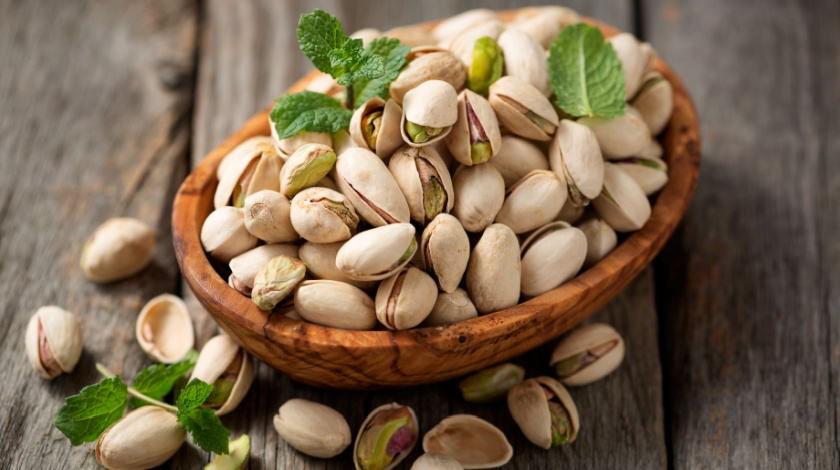In the quest to maintain optimal health, people are constantly looking for natural remedies that can help prevent and manage various health conditions. Almonds, a nutritious and versatile nut, have been hailed as nature’s antidote for diabetes wellness. These tiny powerhouses of nutrients offer a wide range of health benefits, especially for individuals struggling with diabetes or those looking to improve their overall health. In this blog, we will delve into the top six health benefits of almonds and how they can play a crucial role in enhancing diabetes wellness.

Benefit-1. Blood Sugar Control
For individuals with diabetes, managing blood sugar levels is of utmost importance. Almonds are low in carbohydrates and high in healthy fats, fiber, and protein. This combination helps stabilize blood sugar levels and reduces the rapid spikes and crashes in glucose, which is particularly beneficial for those with diabetes. A study published in the Journal of the American College of Nutrition found that consuming almonds with a high-carbohydrate meal can significantly reduce the post-meal rise in blood sugar levels.
Benefit-2. Heart Health
Diabetes and heart disease often go hand in hand, with individuals having diabetes being at an increased risk of heart-related complications. Almonds, rich in heart-healthy monounsaturated fats, help lower bad cholesterol levels (LDL) while increasing good cholesterol levels (HDL). This, in turn, reduces the risk of heart disease. Additionally, almonds are packed with antioxidants and magnesium, which further support cardiovascular health.
Benefit-3. Weight Management
Maintaining a healthy weight is essential for managing diabetes. Almonds are a nutrient-dense snack that can help with weight management. The combination of healthy fats, protein, and fiber in almonds promotes a feeling of fullness and reduces overall calorie consumption. Several studies have shown that incorporating almonds into a balanced diet can lead to improved weight loss and better weight maintenance.
Benefit-4. Improved Insulin Sensitivity
Insulin resistance is a common issue in type 2 diabetes. Almonds have been shown to enhance insulin sensitivity, making it easier for the body to use insulin effectively. This is crucial for individuals with diabetes as it helps regulate blood sugar levels. The high content of magnesium in almonds plays a key role in this process.
Benefit-5. Nutrient-Rich Superfood
Almonds are a nutritional powerhouse. They are an excellent source of vitamins and minerals, including vitamin E, a potent antioxidant. These antioxidants help combat oxidative stress in the body, which is often elevated in people with diabetes. Almonds are also rich in essential minerals like magnesium and potassium, which play a vital role in regulating blood pressure and supporting overall health.
Benefit-6. Digestive Health
Fiber is an essential component of a diabetes-friendly diet, as it helps slow down the absorption of sugar and improves digestive health. Almonds are a good source of dietary fiber, which aids in maintaining regular bowel movements and preventing constipation. A healthy digestive system is crucial for individuals with diabetes, as it supports nutrient absorption and overall well-being.
Incorporating Almonds into Your Diet
Now that we’ve explored the fantastic health benefits of almonds for diabetes wellness let’s discuss how you can incorporate them into your daily routine:
- Snacking: Almonds make for a convenient and healthy snack. A small handful of almonds can keep you energized and satisfied between meals.
- Smoothies: Add a few almonds to your morning smoothie for an extra dose of nutrition and a creamy texture.
- Salads: Sprinkle sliced or chopped almonds on your salads for a satisfying crunch and added flavour.
- Almond Butter: Swap your regular peanut butter with almond butter for a delicious and nutritious alternative.
- Baking: You can use almond flour as a gluten-free and low-carb alternative in baking recipes.
- Almond Milk: Replace cow’s milk with almond milk in your cereal, coffee, or recipes for a dairy-free option.
- Trail Mix: Create your custom trail mix with almonds, dried fruits, and other nuts for a balanced, on-the-go snack.
Taking a natural and holistic approach to diabetes wellness is gaining momentum, and almonds have emerged as an essential component in this journey. Their impressive health benefits, including blood sugar control, heart health support, weight management, improved insulin sensitivity, nutrient density, and digestive health promotion, make them a superfood for those with diabetes or anyone striving for a healthier lifestyle.
Read More: 12 Amazing Benefits of Prickly Pear (Cactus Fruit) for Skin, Hair, and Overall Health
Remember that while almonds offer many health benefits, it’s essential to consume them as part of a balanced diet and in moderation. If you have specific dietary restrictions or concerns, it’s advisable to consult with a healthcare professional or a registered dietitian who can provide personalized guidance. Incorporating almonds into your daily routine is a small but significant step towards better diabetes wellness. So, go ahead, grab a handful of these nutritious nuts and embrace nature’s antidote for a healthier, happier you.
Disclaimer :
It is crucial to monitor your blood sugar levels using a smartphone-connected glucometer on a regular basis. If you feel doubtful about whether or not you should consume a particular item, you should do a quick sugar check before and after you consume it.
Being a person with diabetes, you can enjoy your favourite treats by making sure that you keep the portion size in check. Overindulging can lead to a spike in your sugar levels. It’s important to discuss with your physician how a food item can affect your blood glucose levels. If you have any doubts about what you can include as a part of your diabetes diet, you should always speak to your doctor or health coach.




